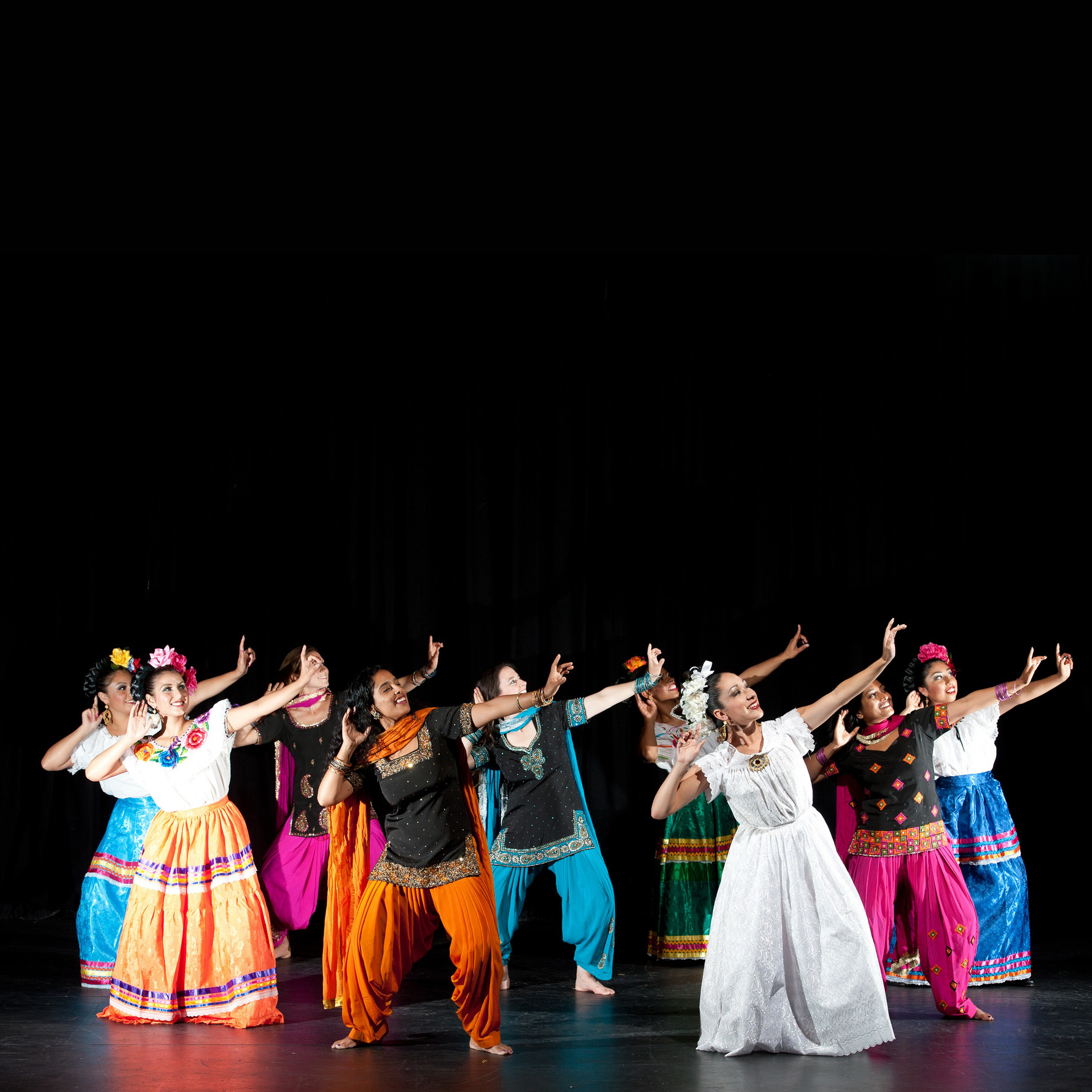Bhangra dancer and choreographer Joti Singh and Zenon Barron, artistic director of Ensambles Ballet Folklorico de San Francisco (Ensambles), combined Bhangra and Mexican Folklorico dance to create, Half and Halves, a piece exploring the Punjabi-Mexican communities of the Imperial, San Joaquin, and Sacramento valleys of California.
Bhangra is traditionally a harvest dance from the state of Punjab in India—a region where agriculture is the main source of work. In the early 20th Century, many men migrated from Punjab to the United States, and discriminatory immigration policies did not permit them to bring wives, become U.S. citizens, or own land. Many of them married Mexican women. These couples had a difficult time, since interracial marriage was illegal. Most of these families would socialize primarily with other Punjabi-Mexican families and bachelor Punjabi men.
Children of these couples often referred to themselves as “half and halves.” Often they were brought up with Mexican and American culture, but the men held onto Punjabi culture through their food and death rites. These cultural aspects offered interesting blending of cultures. For example, most families had their own curry chicken recipes, and the women could make both Mexican tortillas and Indian rotis.
Joti Singh learned the Bhangra dance form as a child from her father, a musician, and her uncles and aunts. She performs traditional and contemporary forms of Bhangra with her company Duniya Dance and Drum Company.
Founded in 1992, Ensambles is an innovative, theatrical body of dancers committed to the preservation of folklorico dance and to passing on the folklorico tradition with quality and authenticity.

